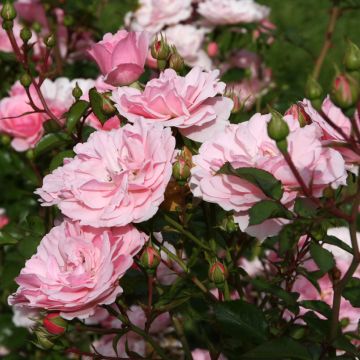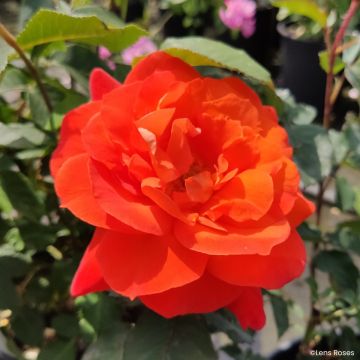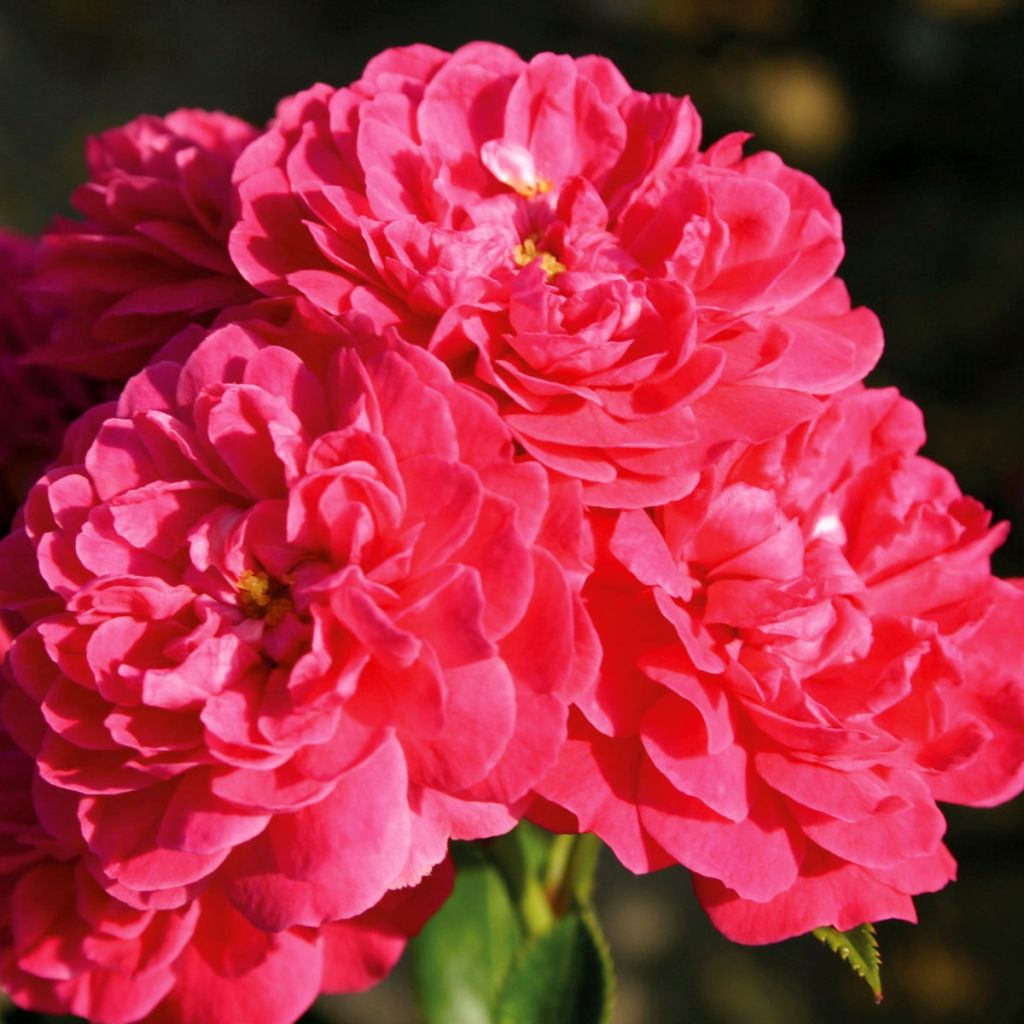

Rosier nain Lilliputs Roxy
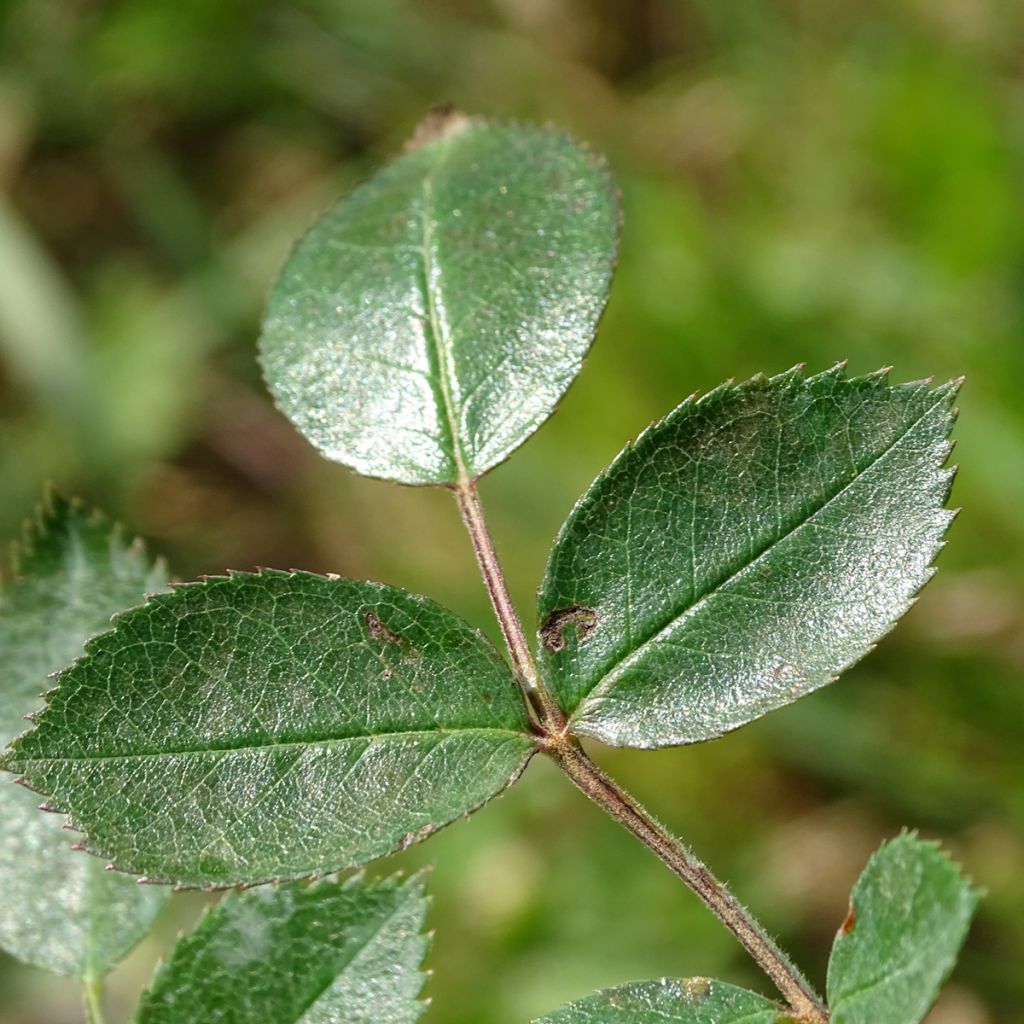

Rosier nain Lilliputs Roxy
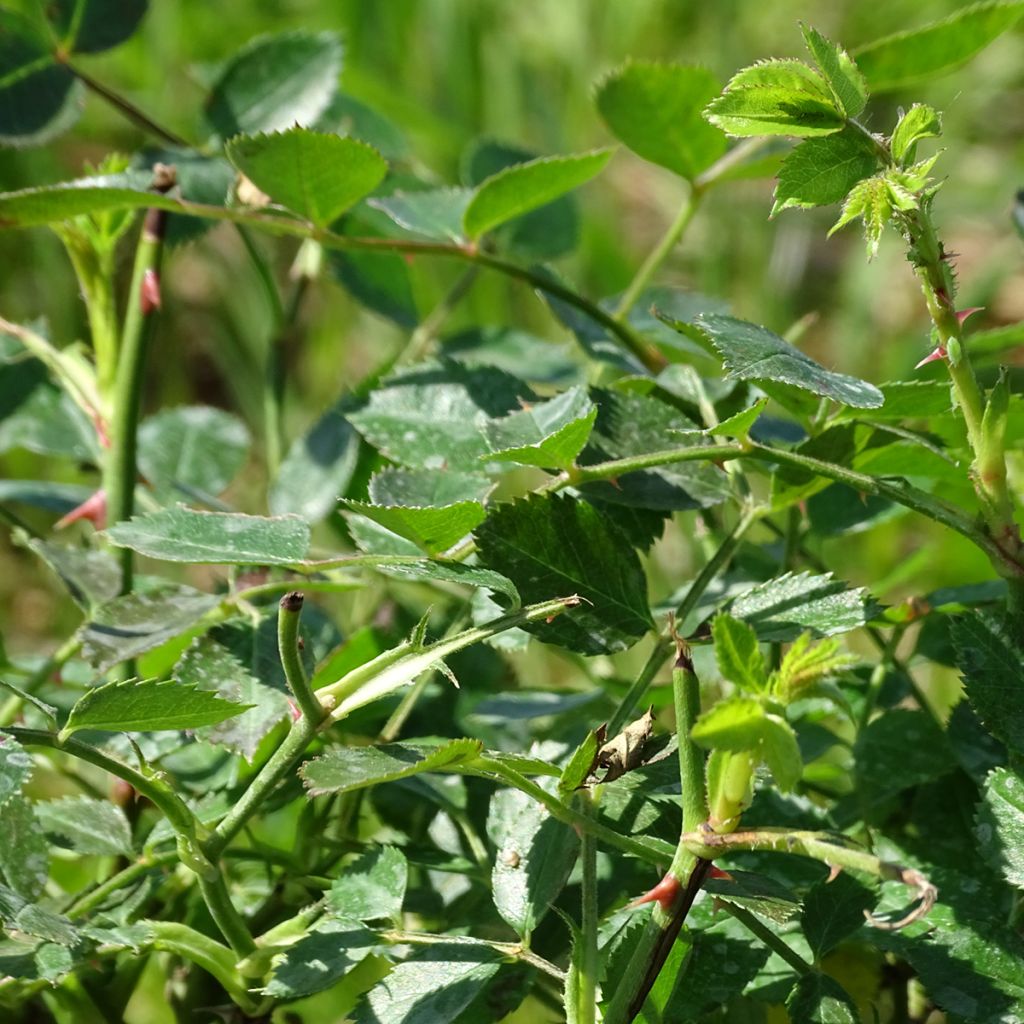

Rosier nain Lilliputs Roxy
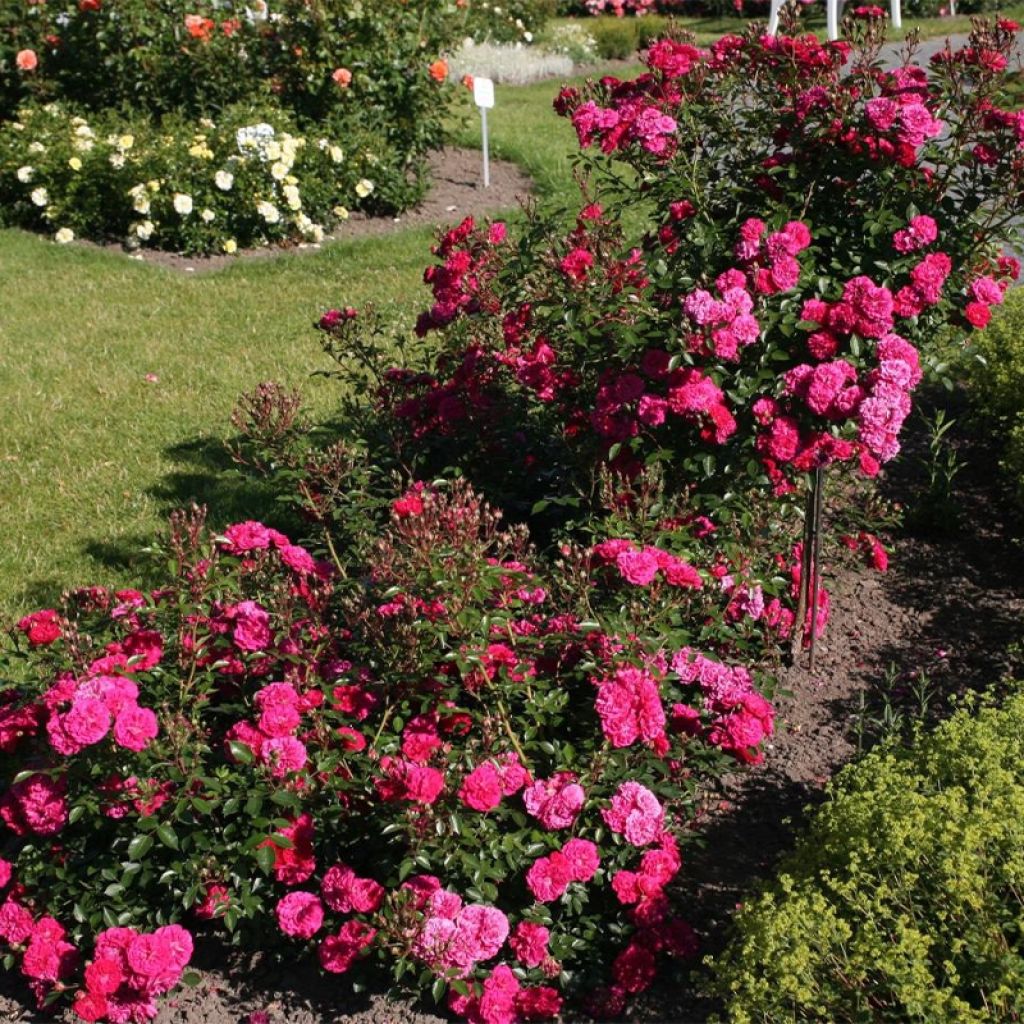

Rosier nain Lilliputs Roxy
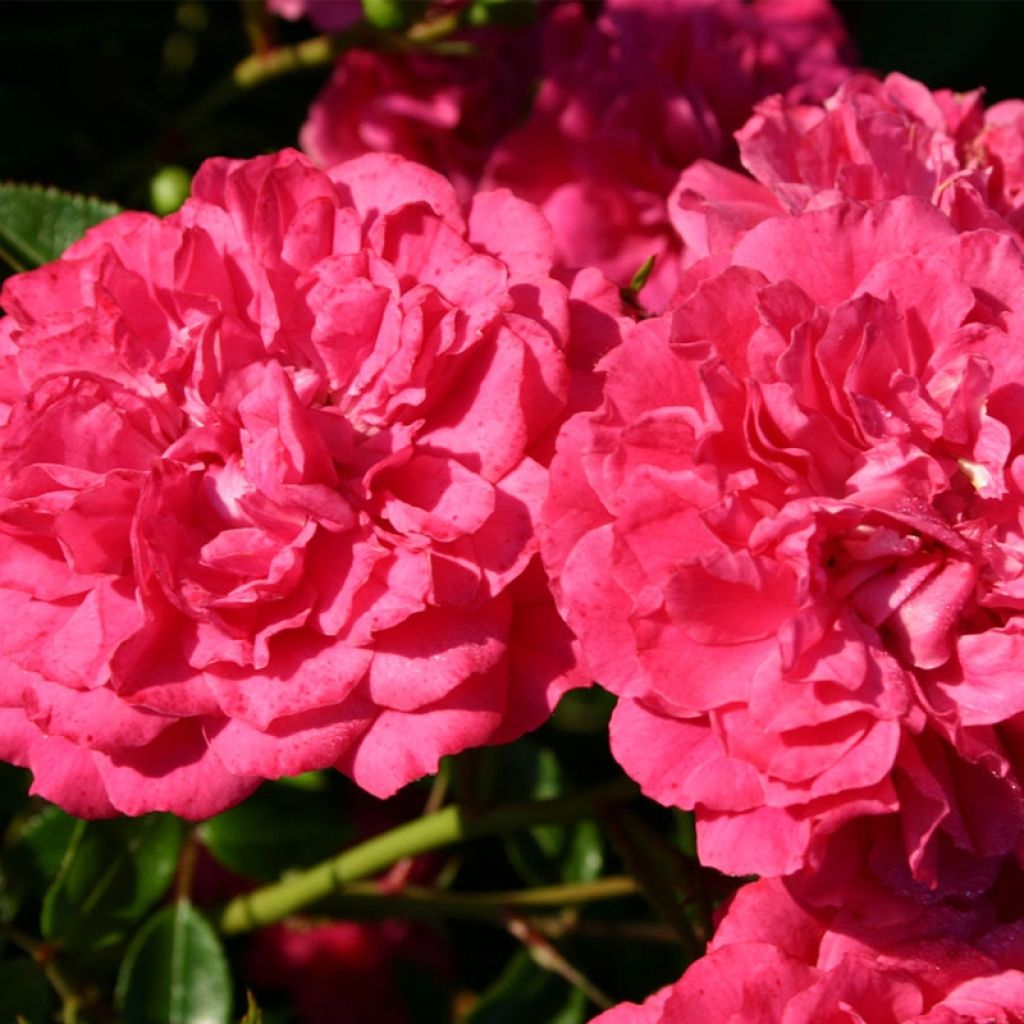

Rosier nain Lilliputs Roxy
Rosa x polyantha LILLIPUTS Roxy - Dwarf Rose
Rosa x polyantha LILLIPUTS® Roxy (Korsineo)
Rose
Thanks to Élodie for the order preparation and shipping service, the rose bush I received as a replacement under warranty seems healthy. Planted near another rose bush of the same variety, I am now patiently waiting for it to take root... (or not?)
Thierry, 01/02/2023
Special offer!
Receive a €20 voucher for any order over €90 (excluding delivery costs, credit notes, and plastic-free options)!
1- Add your favorite plants to your cart.
2- Once you have reached €90, confirm your order (you can even choose the delivery date!).
3- As soon as your order is shipped, you will receive an email containing your voucher code, valid for 3 months (90 days).
Your voucher is unique and can only be used once, for any order with a minimum value of €20, excluding delivery costs.
Can be combined with other current offers, non-divisible and non-refundable.
Home or relay delivery (depending on size and destination)
Schedule delivery date,
and select date in basket
This plant carries a 6 months recovery warranty
More information
We guarantee the quality of our plants for a full growing cycle, and will replace at our expense any plant that fails to recover under normal climatic and planting conditions.

Description
The 'Roxy' rose (KORsineo) is part of a series of particularly floriferous and resistant miniature varieties, the Lilliputs, created by the German rose breeder Kordes. It distinguishes itself with its well-double, vibrant carmine pink pompom flowers, and its exceptional robustness attested by the highly selective German ADR label. It is a very bushy little shrub with a nicely rounded habit and abundant foliage, which blooms continuously from late spring to the first frost. This variety is very easy to grow, both in the ground and in pots.
The flowers of the Lilliputs 'Roxy' rose, gathered in terminal clusters, come from the polyantha rose, an old hybrid derived from Rosa multiflora and Rosa chinensis. This hybrid variety, introduced in 2007 by Kordes, obtained the ADR label in 2008. This German label is awarded based on several criteria such as beauty, floriferousness, robustness, and natural disease resistance. 'Roxy' has also been awarded in international rose competitions.
This very compact and well-behaved bush has a bushy and branched habit, very dense and always neat. It will reach about 40 cm (16in) in all directions in a few years. The double flowers, 4 cm (2in) in size, gathered in clusters, are produced abundantly and almost continuously from June to October if the soil remains moist. In this 'Roxy' variety, the flowers are composed of numerous petals. Their colour ranges from deep carmine pink to light fuchsia pink, creating a beautiful gradient of pink on the plant. The foliage is very healthy, well-provided, with small dentate leaflets not exceeding 2 cm (1in) in length and 1 cm (0in) in width, of a beautiful glossy green. It is deciduous, meaning it disappears in winter and regrows in spring, on short stems with prickles.
The Lilliputs 'Roxy' rose works wonders as a border plant, in flower beds, in pots or in a trough on the terrace, or in a patio. It can be associated with other miniature roses, in harmonious colours, or planted in groups of three plants, arranged in a triangle, in the centre of a small flower bed. Plant it en masse at the edge of the terrace or along a small pathway. For example, it can be paired with perennial geraniums (Geranium Blue Cloud, Rozanne, Anne Folkard, Nimbus, Orion), campanulas (lactiflora, rapunculoides), catmints, perennial salvias, gypsophila, or lobelias, depending on each gardener's preferences. It will also have a great effect at the front of shrub rose beds, where it will hide the base of the roses.
Report an error about the product description
Rosa x polyantha LILLIPUTS Roxy - Dwarf Rose in pictures
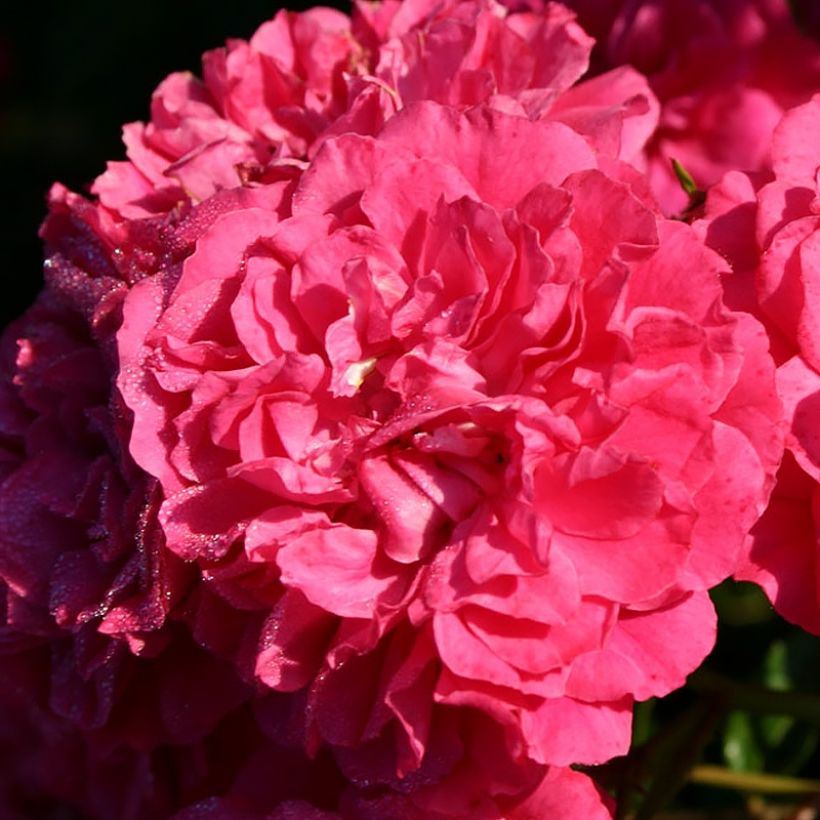

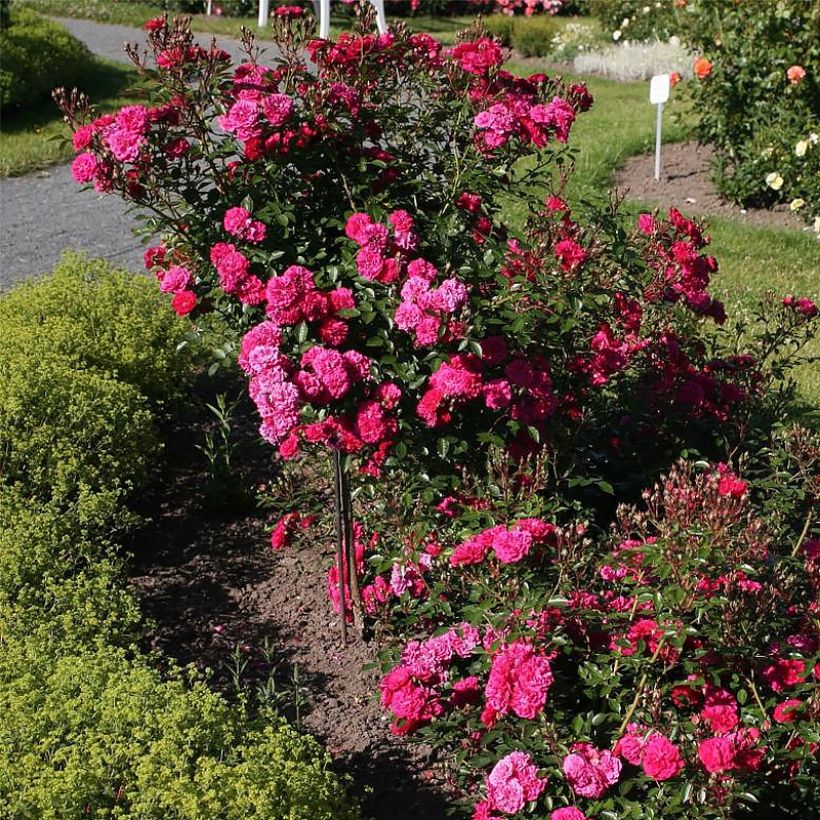

Plant habit
Flowering
Foliage
Botanical data
Rosa
x polyantha
LILLIPUTS® Roxy (Korsineo)
Rosaceae
Rose
Cultivar or hybrid
Planting and care
Lilliput roses from Kordes are easy to grow in a pot with good horticultural soil or in the garden in regular, well-prepared and loosened soil, enriched, not too dry in summer. They prefer a sunny location (at least 4 to 5 hours of sun per day) but sheltered from the scorching midday rays and strong wind. To plant your rose in a pot, work the soil to a depth of 25 cm, crumble the soil well and place a base amendment such as bonemeal at the bottom of the planting hole. Position your plant, removed from its pot, covering the top of the root ball with 3 cm (1in) of soil, fill in and water thoroughly to eliminate air pockets. In dry weather, regular watering is necessary for a few weeks to encourage root establishment. Remember to provide your rose with special rose fertiliser that stimulates plant flowering.
Planting period
Intended location
Care
-
, onOrder confirmed
Reply from on Promesse de fleurs
Similar products
Haven't found what you were looking for?
Hardiness is the lowest winter temperature a plant can endure without suffering serious damage or even dying. However, hardiness is affected by location (a sheltered area, such as a patio), protection (winter cover) and soil type (hardiness is improved by well-drained soil).

Photo Sharing Terms & Conditions
In order to encourage gardeners to interact and share their experiences, Promesse de fleurs offers various media enabling content to be uploaded onto its Site - in particular via the ‘Photo sharing’ module.
The User agrees to refrain from:
- Posting any content that is illegal, prejudicial, insulting, racist, inciteful to hatred, revisionist, contrary to public decency, that infringes on privacy or on the privacy rights of third parties, in particular the publicity rights of persons and goods, intellectual property rights, or the right to privacy.
- Submitting content on behalf of a third party;
- Impersonate the identity of a third party and/or publish any personal information about a third party;
In general, the User undertakes to refrain from any unethical behaviour.
All Content (in particular text, comments, files, images, photos, videos, creative works, etc.), which may be subject to property or intellectual property rights, image or other private rights, shall remain the property of the User, subject to the limited rights granted by the terms of the licence granted by Promesse de fleurs as stated below. Users are at liberty to publish or not to publish such Content on the Site, notably via the ‘Photo Sharing’ facility, and accept that this Content shall be made public and freely accessible, notably on the Internet.
Users further acknowledge, undertake to have ,and guarantee that they hold all necessary rights and permissions to publish such material on the Site, in particular with regard to the legislation in force pertaining to any privacy, property, intellectual property, image, or contractual rights, or rights of any other nature. By publishing such Content on the Site, Users acknowledge accepting full liability as publishers of the Content within the meaning of the law, and grant Promesse de fleurs, free of charge, an inclusive, worldwide licence for the said Content for the entire duration of its publication, including all reproduction, representation, up/downloading, displaying, performing, transmission, and storage rights.
Users also grant permission for their name to be linked to the Content and accept that this link may not always be made available.
By engaging in posting material, Users consent to their Content becoming automatically accessible on the Internet, in particular on other sites and/or blogs and/or web pages of the Promesse de fleurs site, including in particular social pages and the Promesse de fleurs catalogue.
Users may secure the removal of entrusted content free of charge by issuing a simple request via our contact form.
The flowering period indicated on our website applies to countries and regions located in USDA zone 8 (France, the United Kingdom, Ireland, the Netherlands, etc.)
It will vary according to where you live:
- In zones 9 to 10 (Italy, Spain, Greece, etc.), flowering will occur about 2 to 4 weeks earlier.
- In zones 6 to 7 (Germany, Poland, Slovenia, and lower mountainous regions), flowering will be delayed by 2 to 3 weeks.
- In zone 5 (Central Europe, Scandinavia), blooming will be delayed by 3 to 5 weeks.
In temperate climates, pruning of spring-flowering shrubs (forsythia, spireas, etc.) should be done just after flowering.
Pruning of summer-flowering shrubs (Indian Lilac, Perovskia, etc.) can be done in winter or spring.
In cold regions as well as with frost-sensitive plants, avoid pruning too early when severe frosts may still occur.
The planting period indicated on our website applies to countries and regions located in USDA zone 8 (France, United Kingdom, Ireland, Netherlands).
It will vary according to where you live:
- In Mediterranean zones (Marseille, Madrid, Milan, etc.), autumn and winter are the best planting periods.
- In continental zones (Strasbourg, Munich, Vienna, etc.), delay planting by 2 to 3 weeks in spring and bring it forward by 2 to 4 weeks in autumn.
- In mountainous regions (the Alps, Pyrenees, Carpathians, etc.), it is best to plant in late spring (May-June) or late summer (August-September).
The harvesting period indicated on our website applies to countries and regions in USDA zone 8 (France, England, Ireland, the Netherlands).
In colder areas (Scandinavia, Poland, Austria...) fruit and vegetable harvests are likely to be delayed by 3-4 weeks.
In warmer areas (Italy, Spain, Greece, etc.), harvesting will probably take place earlier, depending on weather conditions.
The sowing periods indicated on our website apply to countries and regions within USDA Zone 8 (France, UK, Ireland, Netherlands).
In colder areas (Scandinavia, Poland, Austria...), delay any outdoor sowing by 3-4 weeks, or sow under glass.
In warmer climes (Italy, Spain, Greece, etc.), bring outdoor sowing forward by a few weeks.

































